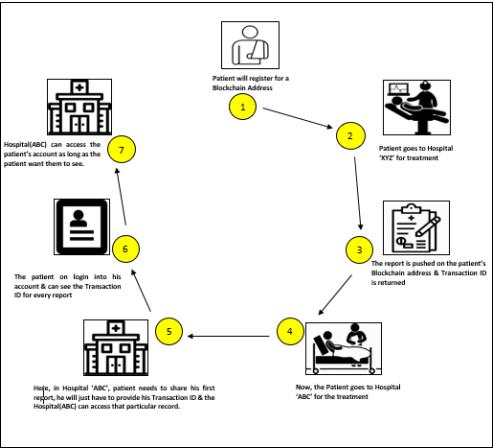Cryptocurrency is the new frontier in finance - opening new opportunities and possibilities. From funding budding entrepreneurs to helping Ukraine crowdfund its defense against Russia, it is disrupting finance on a global scale. So too is the platform used for those crypto deliveries – blockchain which has the potential to transform multiple industries, including health care.

John Vozenilek, MD., vice president/chief medical officer for OSF Innovation and Digital Health describes blockchain technology as an immutable ledger that records transactions and that leaves an indelible mark that shows every time a transaction has occurred.So, the ledger technology allows for enhanced security in the transfer of data and medical records for research, community collaborations, even ensuring the integrity of pharmaceuticals used by hospitals and medical clinics.
Dr. Vozenilek says data security and the permission-based use of protected patient medical information is the highest and best use of blockchain in health care. For example the chain allows patients to elect how their data and which kinds of information about them they’ll allow for use in medical research. Those decisions could be made in advance, through smart contracts, and not through one-on-one consultations with providers about clinical trials.
“In our future state, if patients wanted to be made aware of a broad diversity of studies, they could elect to be available and they could sub-elect which pieces of data they would like to share. So, this allows us to do this type of confidential matching that exceeds our ability to do this in a one-to-one scale with a scale that can be highly automated.”
With blockchain, patients could self-select which types of data could be open. So for example, a diabetic could agree to allow their glucose meter and blood pressure readings to be available on the blockchain portal, but not their name, income, address or phone number. Dr. Vozenilek provides an analogy.




